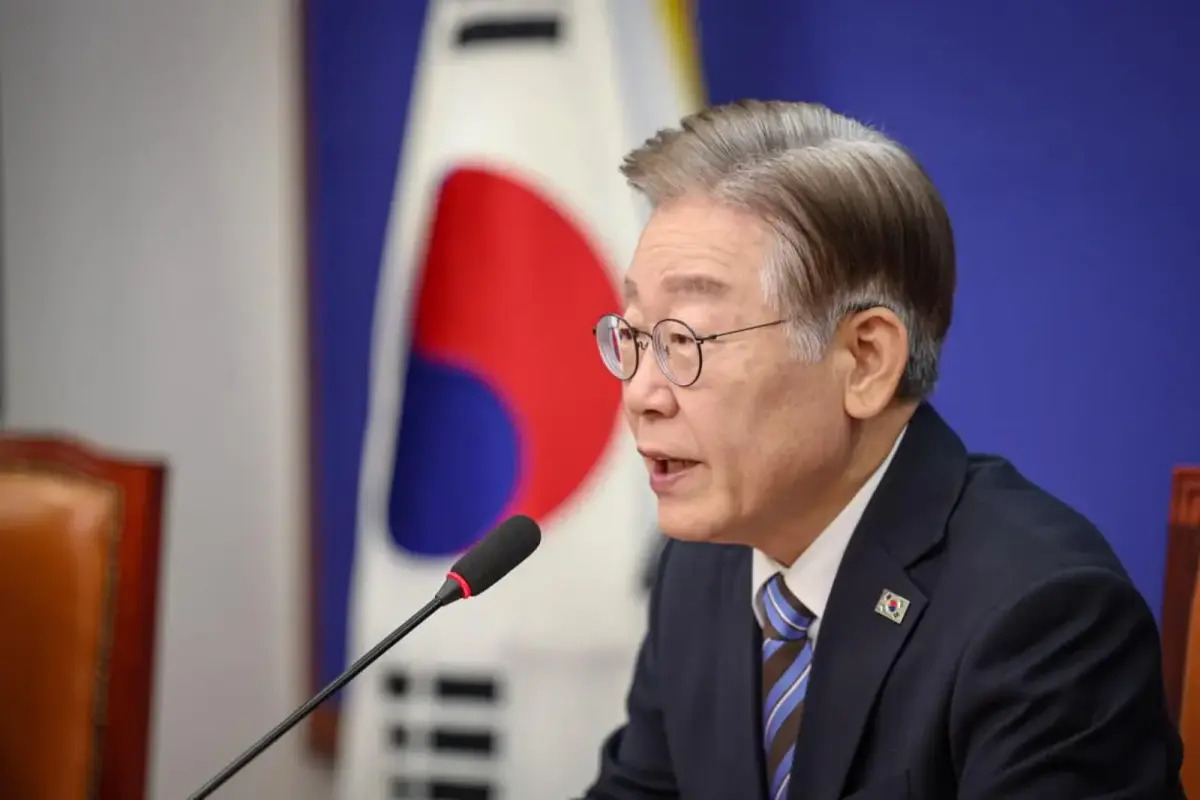Lee Jae-myung Wins South Korean Presidency, Promises Crypto Revolution



Liberal leader Lee Jae-myung has been sworn in as South Korea's new president after securing a decisive victory in Tuesday's snap election, immediately pledging to revive the country's democracy from "near demise" while potentially ushering in the most crypto-friendly administration in the nation's history.
Lee captured 49.42% of nearly 35 million votes cast, defeating conservative rival Kim Moon-soo who took 41.15% in what marked the highest turnout for a presidential election since 1997, Reuters reported .
From Martial Law Crisis to Crypto Promise
Lee's path to the presidency began dramatically six months ago when he jumped over parliament's perimeter wall to avoid martial law troops and vote down former President Yoon Suk-yeol's botched military decree. Taking his oath at the same parliament building where he made that historic leap, Lee declared his administration would be "a pragmatic pro-market government."
The election was triggered by Yoon's impeachment following the failed martial law attempt , which Lee described as bringing the country to "near destruction." The crisis appears to have accelerated public appetite for the progressive reforms Lee championed during his campaign, particularly in the digital asset space.
Crypto Community Celebrates Victory
Lee's election victory represents a potential watershed moment for South Korea's massive cryptocurrency community. With approximately 16 million citizens—nearly one-third of the population—actively trading digital assets, Lee's crypto-friendly platform resonated strongly with voters holding $74.5 billion worth of digital assets by the end of 2024.
During the campaign, Lee unveiled the most ambitious crypto reform agenda in South Korean political history, promising to:
- Legalize spot cryptocurrency exchange-traded funds (ETFs)
- Allow the country's massive $884 billion National Pension Service to invest in digital assets
- Promote widespread adoption of Korean won-backed stablecoins
- Streamline regulations to prevent capital flight
Economic Challenges Loom Large
Despite the crypto community's celebration, Lee faces what could be the most daunting set of economic challenges for a South Korean leader in nearly three decades. The new president has inherited an economy under siege from global protectionism, with immediate pressure from the Trump administration over trade imbalances.
"President Lee will find himself with little to no time to spare before tackling the most important task of his early presidency: reaching a deal with Trump," the Washington-based Center for Strategic and International Studies warned.
South Korean stocks rallied on Wednesday following Lee's victory, with the benchmark KOSPI rising more than 2% to a 10-month high. Financial sector stocks led gains on expectations of market reforms, while renewable energy stocks also surged as Lee has pledged a shift to a greener energy mix, Reuters noted.
Lee has committed to addressing urgent economic challenges on his first day in office, focusing on cost-of-living concerns affecting middle and low-income families and struggles facing small business owners.
The new president nominated Kim Min-seok, a four-time lawmaker, as prime minister on Tuesday. Notably, Kim made headlines in August last year by predicting Yoon might declare martial law—roughly three months before the actual decree.
Crypto Reforms Meet Geopolitical Reality
While Lee's crypto promises energized domestic voters, implementation will require careful navigation of international relationships, particularly with the United States and China. The president has expressed more conciliatory plans for ties with China while maintaining that the U.S. alliance remains "the backbone of South Korea's global diplomacy."
The timing for crypto reforms appears favorable, with Korea Exchange exploring crypto ETFs in 2025 and the country set to allow institutional crypto trading by Q3 2025. However, Lee's administration will need to balance domestic crypto enthusiasm with international regulatory coordination.

Corporate Cash Exodus Continues as Metaplanet Targets Massive Bitcoin Holdings
Japanese firm's $5.3B plan to hold 1% of all Bitcoin highlights accelerating shift from traditional ...

Binance Compliance Chief Tigran Gambaryan Exits Exchange After Nigeria Detention
Former IRS agent leaves crypto exchange following eight-month imprisonment and health complications....

Musk vs. Trump Sparks Liquidations – Why We Believe the Correction Will Extend
Your daily access to the backroom....

